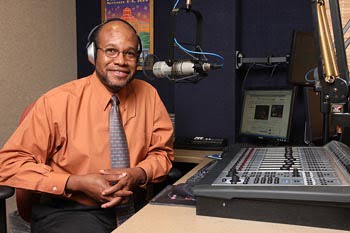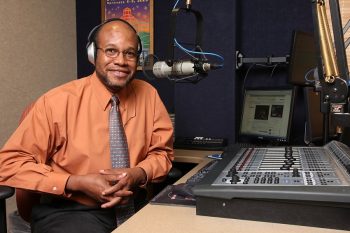To Serve and Protect

by Errington C. Thompson, MD –
In December 1978, Richard Pryor released his movie Live in Concert.
It was really Richard Pryor at his best. He was raw. He was in your face. He commanded the stage. His routines were really sketches. All his sketches, at least to me, seem to be based in reality.
He opens the movie talking about a real-life incident in which his wife was going to leave him. Using the logic that only Richard Pryor can twist on stage, he decided in his inebriated state that although his wife may leave him she wasn’t going to leave in his car. He was going to kill the car. So, he takes out his magnum and shoots the car.
“Then the police came. I went inside my house… ’Cause, they don’t shoot cars, they shoot n@#%ers.”
Because of the rhyme, because of his timing and because of how he said it, Pryor gets a big laugh. After the laughter dies down, Richard Pryor states, “Police have a chokehold they use here to choke black people to death. Did you know they had a chokehold? The black people are shaking their heads yes while the white people are shaking their heads no.” (I have paraphrased.)
And generations later
It has been more than 35 years since Richard Pryor first uttered those words. In July 2014, Eric Garner, a black man, was killed in a chokehold by the New York police.
In my opinion, the exact circumstances of how Eric Garner got into this position is irrelevant. The bottom line, Eric Garner had no weapons. He made no threatening gestures. At no time did the New York police officers feel threatened. It is true that Eric Garner stated that he was tired of being harassed.
When you watch the video, and there is video, several police officers wrestle Eric Garner to the ground. You can clearly hear Mr. Garner cry out, “I can’t breathe.” His pleas for oxygen were ignored. He’s allowed to lie on the ground, with three or four police officers around him. He is in a semi-conscious state, for minutes, before anyone notices that, basically, he’s dying.
In 1982, Grandmaster Flash and the Furious Five released their classic rap The Message.
Don’t push me ’cause I’m close to the edge. I’m trying not to lose my head. It’s like a jungle sometimes, it makes you wonder how I keep from going under…
Whether you like rap or not, the beauty of this song is in the raw power of the lyrics. This song propels the listener deep into the inner city, much like Gil Scott Heron’s The Revolution Will Not Be Televised. This isn’t a candy-coated version of the ’hood: this is ugly. This song clearly articulates the no-win scenario for those who live in the inner city. There are plenty of roads, but they all lead to frustration and despair.
Michael Brown
Michael Brown lived in the world that was clearly described by Grandmaster Flash more than three decades earlier. He lived in Ferguson, Missouri. He had few prospects. So let’s take a step back and look at the big picture.
Michael Brown was walking down the street. He was unarmed. He was confronted by Officer Darren Wilson. Michael Brown ends up dead. Officer Darren Wilson goes before a grand jury and is “exonerated” after the jury decides no charges will be filed.
How it is
A friend of mine, a black trauma surgeon, driving with his two little children in the back seat, was pulled over because he was driving three m.p.h. over the speed limit. The police officer approached his late-model BMW M3 with his gun drawn. Why? Is it routine to pull your gun on every traffic stop? Or did the officer see a big black man and couldn’t wrap his mind around the fact that a black man could lawfully own a BMW?
I would argue that you cannot do your job adequately if you think that everybody you’re looking at is a criminal. If you wrestle a 350-lb. man to the ground and he stops moving, talking, and breathing, and you cannot render aid to him, then you aren’t serving and protecting.
How it should be
I have this crazy fanciful notion of the United States – all Americans should be equal under the law. I truly want the police force to serve and protect … all of our citizens. Whether you’re patrolling Ferguson or Staten Island or Cleveland, if you cannot relate to the people you are supposed to be protecting, you may have the wrong job.
I need the police to serve and protect all of us. Don’t you?







